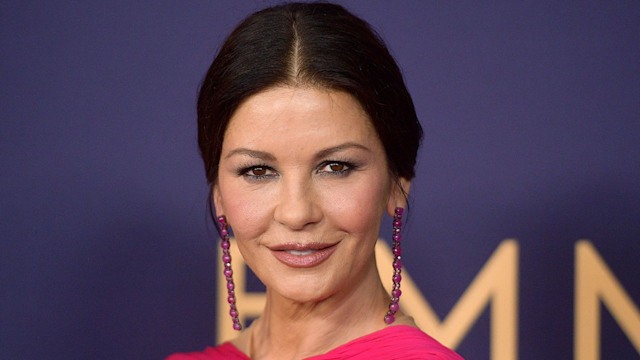Catherine Zeta-Jones has taken to Instagram to ask her fans for health advice. She shared a photo of herself on her Stories as she held a mug of coffee and captioned it: "How much coffee is too much coffee?" with a poll including the options: "There's a limit" and "Another cup, please!"
MORE: These are the most-wanted coffee machines on the internet right now
The answer? Search 'how much coffee should you have a day', and you'll see that there's a whole load of conflicting advice from the experts, and it much depends on how sensitive you and your body are to caffeine. Tthis is something you can't definitively measure, but that you can decipher according to symptoms and how intensely you experience them – for example, if you get the jitters and feel anxious after just one cup of coffee, you're probably more sensitive to caffeine than others.
WATCH: Catherine Zeta-Jones wows fans with Thanksgiving decor
If we were to look at the existing evidence, though, while there are lots of benefits to coffee (increased concentration and more energy are just a few), there has been several studies that suggest the negatives that come from over 600mg (six cups) of coffee a day outweigh the positives. According to the British Dietetics Association, drinking this much can lead to "insomnia, nervousness, irritability, increased blood pressure and upset stomachs".
READ: Catherine Zeta-Jones, 52, swears by this £28 face cream - and it's in the Black Friday sale
MORE: Catherine Zeta-Jones' opulent home office is full of special tributes
Catherine hosted a poll on Instagram
Instead, most health organisations suggest that people stick to 300mg (three cups) of coffee or less per day. Pregnant women, meanwhile, are advised not to go over two cups, says the NHS, since studies have linked caffeine intake (not just coffee) with low birth weight babies.
Follow these recommendations around coffee consumption and you could reap the rewards that come with caffeine, running the gamut from alertness to increased performance in both short and endurance exercise.
You can find more information on caffeine via the NHS and The Association of UK Dietitians.
Like this story? Sign up to our newsletter to get other stories like this delivered straight to your inbox.
